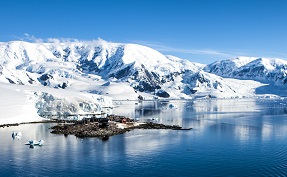A wider circle for European polar research

Related topics
Environment & climate action Innovation Austria Belgium Bulgaria Denmark Estonia France Germany Italy Netherlands Poland Portugal Spain Sweden United Kingdom Environment Norway GreenlandGlobal warming has led to profound changes in the polar regions. This development has implications reaching far beyond the high latitudes. Polar issues have therefore been rising up the political agenda across Europe, generating a stronger demand for information on the associated opportunities and risks from Europe’s policy- and decision-makers.
An EU-funded coordination and support action named EU-PolarNet is boosting Europe’s ability to study the processes at play and generate new knowledge. Launched in March 2015, it combines the competences of 22 renowned, multidisciplinary institutions from 17 European countries — making it the world’s largest consortium of polar research expertise and infrastructure.
In line with its leitmotiv “Connecting Science with Society”, EU-PolarNet aims to create a suite of proposals for research that will generate scientific outcomes of direct relevance and benefit to European society and to the economy.
To do so, the consortium will maintain a dialogue involving policy-makers, business and industry leaders, local communities and scientists throughout the project. The aim of this interaction is to co-design an Integrated European Research Programme for the Antarctic and the Arctic.
EU-PolarNet will also work closely with the European Commission, providing support and advice on all issues related to the polar regions, and establish close relations with international partners.
